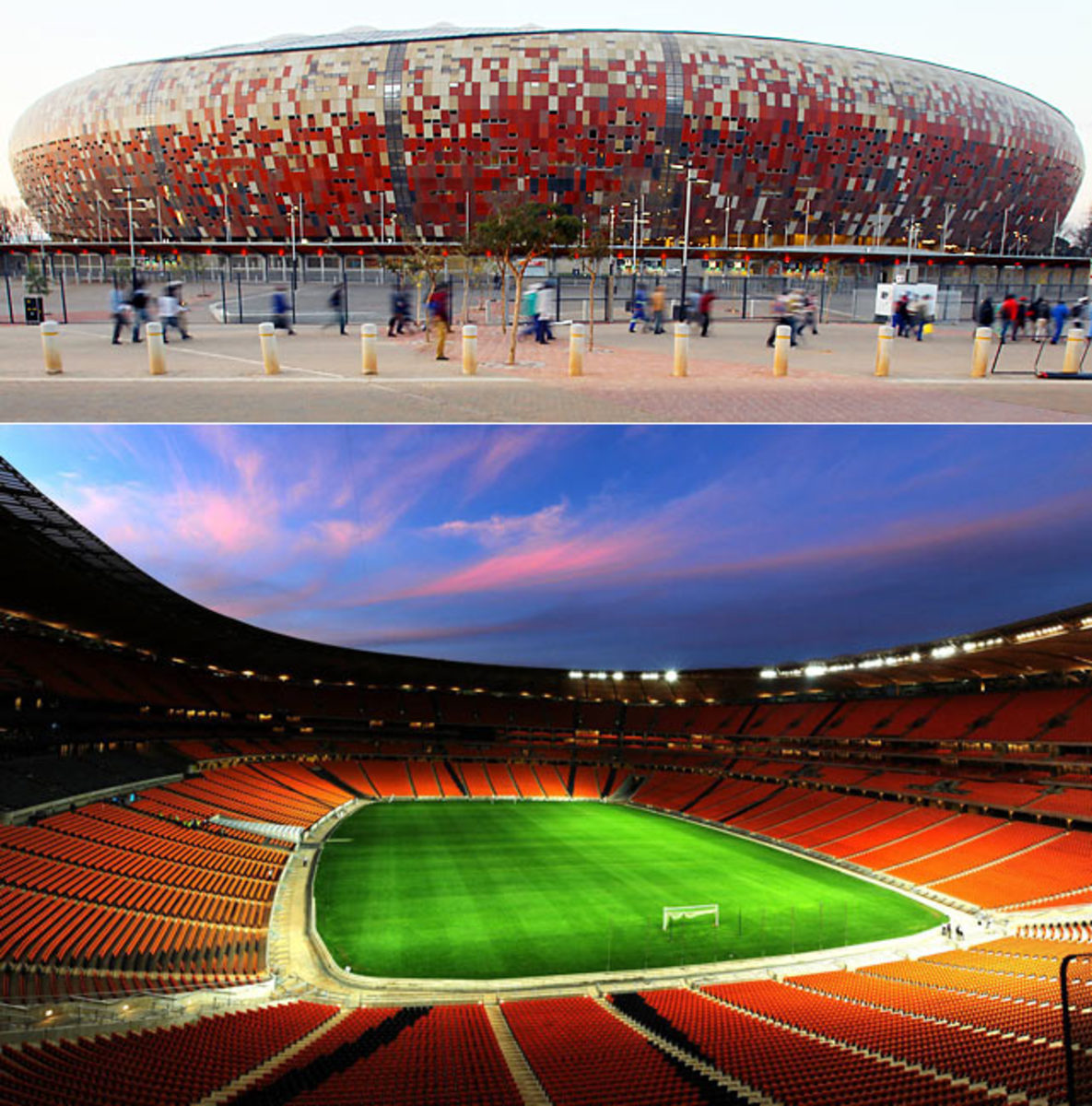The FIFA World Cup is a global spectacle that unites millions of fans from across the world, and at the heart of this event are the world cup venues that bring the magic to life. These stadiums are not just structures; they are arenas where history is made, dreams are realized, and unforgettable moments are created. From the thunderous roars of the crowd to the breathtaking atmosphere, these venues play a crucial role in shaping the tournament's legacy. As we delve into the intricacies of these iconic locations, we'll uncover the stories behind their construction, their unique features, and the unforgettable matches they've hosted.
Each world cup venue has its own tale to tell, from the majestic Maracanã in Brazil to the stunning Lusail Iconic Stadium in Qatar. These arenas are meticulously designed to provide fans with an immersive experience, offering state-of-the-art facilities and unparalleled views of the action on the field. Over the years, the evolution of these venues has been remarkable, reflecting advancements in technology, architecture, and sustainability. As we explore these iconic locations, we'll also examine how they contribute to the local economy and foster a sense of pride and unity among the host communities.
Beyond their role in hosting the world's most prestigious soccer tournament, these world cup venues serve as cultural landmarks that leave a lasting impact long after the final whistle blows. They become symbols of national pride and serve as reminders of the passion and dedication that go into organizing such a monumental event. In this article, we'll take you on a journey through some of the most iconic world cup venues, highlighting their significance, unique features, and the unforgettable moments they've witnessed. Let's dive in and explore the magic of these legendary arenas.
Read also:Portlands Culinary Gem Discovering The Wayfinder Restaurant
What Makes a World Cup Venue Special?
When it comes to the FIFA World Cup, the venues themselves are as important as the matches they host. A world cup venue is more than just a stadium; it's a place where dreams are realized and history is made. These venues are designed to offer an unforgettable experience for both players and fans, with state-of-the-art facilities, cutting-edge technology, and a capacity to host tens of thousands of spectators. But what exactly makes a world cup venue special? Let's explore the key factors that set these arenas apart.
First and foremost, a world cup venue must meet stringent FIFA standards, ensuring it provides the best possible environment for top-tier soccer. This includes factors such as pitch quality, seating arrangements, and accessibility for fans. Additionally, modern world cup venues incorporate innovative designs and sustainable practices, making them not only functional but also environmentally friendly. From retractable roofs to solar panels, these venues showcase the latest advancements in stadium architecture.
Moreover, the cultural and historical significance of a world cup venue cannot be overlooked. Many of these arenas have been built to reflect the unique identity of the host nation, incorporating local traditions and architectural styles. This not only enhances the fan experience but also leaves a lasting legacy for future generations. As we delve deeper into the world of world cup venues, we'll uncover the stories behind some of the most iconic arenas and the moments that have defined them.
Which World Cup Venues Have Hosted the Most Memorable Matches?
Throughout the history of the FIFA World Cup, certain venues have become synonymous with unforgettable matches that have etched themselves into the annals of soccer history. These world cup venues have witnessed legendary performances, dramatic comebacks, and moments of pure brilliance that have left fans in awe. Let's take a look at some of the most memorable matches that have taken place in these iconic arenas.
The Maracanã Stadium in Rio de Janeiro, Brazil, is perhaps the most famous world cup venue, having hosted the 1950 and 2014 World Cup finals. It was here that Brazil suffered one of its most heartbreaking defeats in 1950, losing to Uruguay in front of nearly 200,000 fans. Decades later, the Maracanã once again captured the world's attention during the 2014 tournament, hosting several thrilling matches, including Germany's historic 7-1 victory over Brazil in the semifinals.
Another world cup venue that has witnessed its fair share of magic is the Estadio Azteca in Mexico City. Known as the "Cathedral of Football," this iconic stadium hosted two World Cup finals, in 1970 and 1986, and was the setting for some of the greatest moments in soccer history. From Pelé's hat-trick in the 1970 final to Diego Maradona's "Hand of God" goal in 1986, the Estadio Azteca has been the stage for countless unforgettable moments that continue to inspire fans around the world.
Read also:The Ultimate Guide To The Best Of Moody Blues Songs
How Are World Cup Venues Chosen?
The process of selecting world cup venues is a complex and meticulous one, involving a variety of factors that must be carefully considered. From the infrastructure and facilities to the location and climate, every aspect is evaluated to ensure the chosen venues can provide the best possible experience for players and fans alike. But how exactly are world cup venues chosen, and what criteria do organizers use to make their decisions? Let's explore the key factors that influence this important decision.
One of the primary considerations when selecting world cup venues is the capacity and facilities of the stadium. A world cup venue must be able to accommodate tens of thousands of fans, while also providing top-notch amenities such as seating, concessions, and restrooms. Additionally, the stadium must meet FIFA's stringent standards for pitch quality, lighting, and safety. Another important factor is the location of the venue, which must be accessible to fans and players alike, with adequate transportation and accommodation options.
Climate is also a crucial consideration when choosing world cup venues, especially for tournaments held in regions with extreme weather conditions. Organizers must ensure that the selected venues can provide a comfortable environment for players and fans, regardless of the season. This may involve the use of advanced cooling systems or scheduling matches during cooler times of the day. As we examine the process of selecting world cup venues, we'll uncover the intricate details that go into making these important decisions.
Why Are World Cup Venues Important for the Host Nation?
For the host nation, world cup venues are much more than just stadiums; they are symbols of national pride and unity that bring people together in celebration of their shared love for soccer. These venues serve as the centerpiece of the tournament, attracting fans from all over the world and showcasing the host nation's culture and hospitality. But why exactly are world cup venues so important for the host nation, and what impact do they have on the local community? Let's explore the significance of these iconic arenas and their lasting legacy.
One of the key reasons world cup venues are so important for the host nation is their ability to generate economic growth and development. The construction and operation of these venues create jobs and stimulate local businesses, while also attracting tourists and investors. Additionally, world cup venues often serve as cultural landmarks that continue to benefit the community long after the tournament has ended. Many of these arenas are repurposed for other events, such as concerts, exhibitions, and local sports competitions, ensuring their continued relevance and value.
Moreover, world cup venues play a crucial role in fostering a sense of pride and unity among the host nation's citizens. They provide a space where people can come together to celebrate their shared love for soccer and their national identity. This sense of community and belonging is an invaluable legacy that continues to resonate long after the final whistle blows. As we delve deeper into the importance of world cup venues, we'll uncover the ways in which they contribute to the host nation's success and prosperity.
What Are Some of the Most Iconic World Cup Venues?
Can World Cup Venues Influence the Outcome of Matches?
Is the Design of World Cup Venues Changing Over Time?
How Do World Cup Venues Impact Local Communities?
World Cup Venues: A Legacy of Innovation
What Role Do World Cup Venues Play in Promoting Sustainability?
World Cup Venues and Their Contribution to Soccer's Global Appeal
Exploring the Architectural Wonders of World Cup Venues
How Do World Cup Venues Reflect the Host Nation's Culture?
World Cup Venues: The Heart of the Tournament
Table of Contents
- What Makes a World Cup Venue Special?
- Which World Cup Venues Have Hosted the Most Memorable Matches?
- How Are World Cup Venues Chosen?
- Why Are World Cup Venues Important for the Host Nation?
- What Are Some of the Most Iconic World Cup Venues?
- Can World Cup Venues Influence the Outcome of Matches?
- Is the Design of World Cup Venues Changing Over Time?
- How Do World Cup Venues Impact Local Communities?
- World Cup Venues: A Legacy of Innovation
- What Role Do World Cup Venues Play in Promoting Sustainability?
- World Cup Venues and Their Contribution to Soccer's Global Appeal
- Exploring the Architectural Wonders of World Cup Venues
- How Do World Cup Venues Reflect the Host Nation's Culture?
- World Cup Venues: The Heart of the Tournament
In conclusion, world cup venues are more than just stadiums; they are the heart and soul of the FIFA World Cup, providing fans with unforgettable experiences and creating lasting legacies for the host nations. As we've explored the intricacies of these iconic arenas, we've uncovered the stories behind their construction, their unique features, and the unforgettable moments they've witnessed. From the majestic Maracanã to the innovative Lusail Iconic Stadium, these venues continue to inspire and captivate fans around the world, showcasing the passion and dedication that go into organizing the world's greatest soccer tournament.


